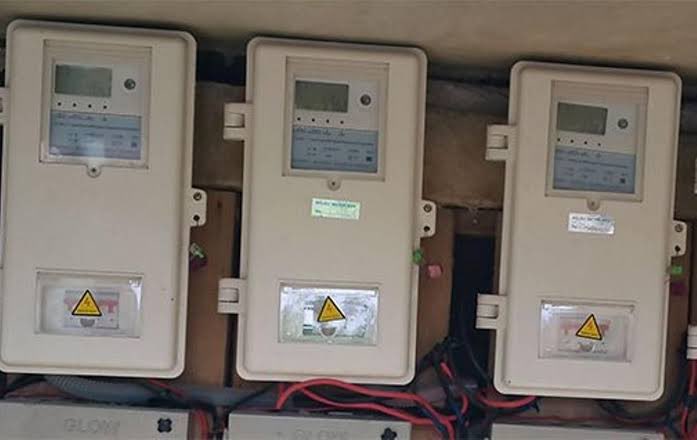
Radio Nigeria Harmony FM’s Sola Rotimi visits Tanke Area of Ilorin to unravel challenges faced by residents while trying to procure prepaid meters and how some prepaid customers bypass meters to have direct access to power, as well as the impacts of power theft on the economy.
His findings show a critical energy sector that can contribute meaningfully to the economic development of the country and citizens, if well managed.
Tanke: How Residents Are Meeting their Electricity Meter Needs.
Tanke, located in Ilorin South Local Local Government Area of Kwara State, is one of the major commercial hubs in Ilorin metropolis. Tipper Garage in particular, located in the area, is the meeting point of buying and selling.
The University of Ilorin, other tertiary, secondary and primary schools, as well as student hostels are located in the area. Hospitals, hotels and religious worship centres stand out conspicuously in Tanke. A random survey identifies Tanke as one of the areas with a relatively high electric supply as the Ibadan Electricity Distribution Company (IBEDC) mapped the area under Band ‘B’ with at least 18 hours of uninterrupted supply. Prior to the recent improvement, residents ‘enjoyed’ a maximum of four to six hours supply in three days of the week- mostly at night.
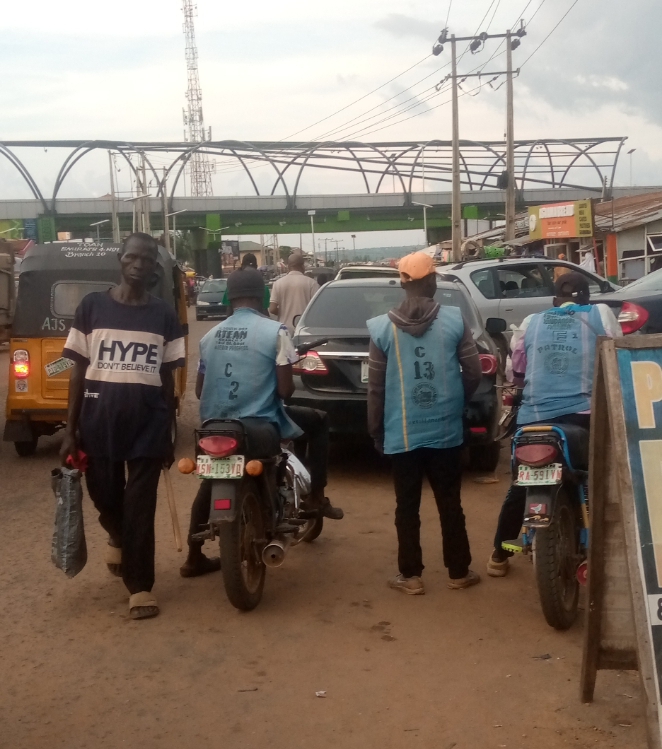
Tanke Tipper Garage( photo by Sola Rotimi)
Mr. Adebayo Ayinla is the Secretary of Tanke Community Residents. He said he heaved a sigh of relief when his meter was finally installed after two months. He said the monthly estimated bills almost shot up his blood pressure.
“We had to mobilize members of the community to lodge complaints at the IBEDC Tanke Operations on issues of epileptic power supply and estimated increase in bills,” he said.
According to Mr Ayinla, before the prepaid meter was installed, there was a total blackout for over six weeks, yet residents endured it to ensure that the issue of high estimated billings, tagged “crazy bills”, was eventually trashed out. They thereafter visited the Nigerian Electricity Regulatory Commission (NERC) forum office at Stadium Road, Ilorin where they were advised to apply for prepaid meters as part of solutions to put an end to the regime of estimated billing. However, not all residents could afford the price of the meter.
“We are happy that most members of this community now have their houses metered. Unfortunately, some people have been on the case since December last year ( 2023). They keep saying there’s no meter on ground”, he explained.
Mr. Adebayo, however, announced that power supply to the area has improved as they now enjoy 18 hour supply. Current charge for Band B unmetered residences in Tanke is ₦16,000 plus.
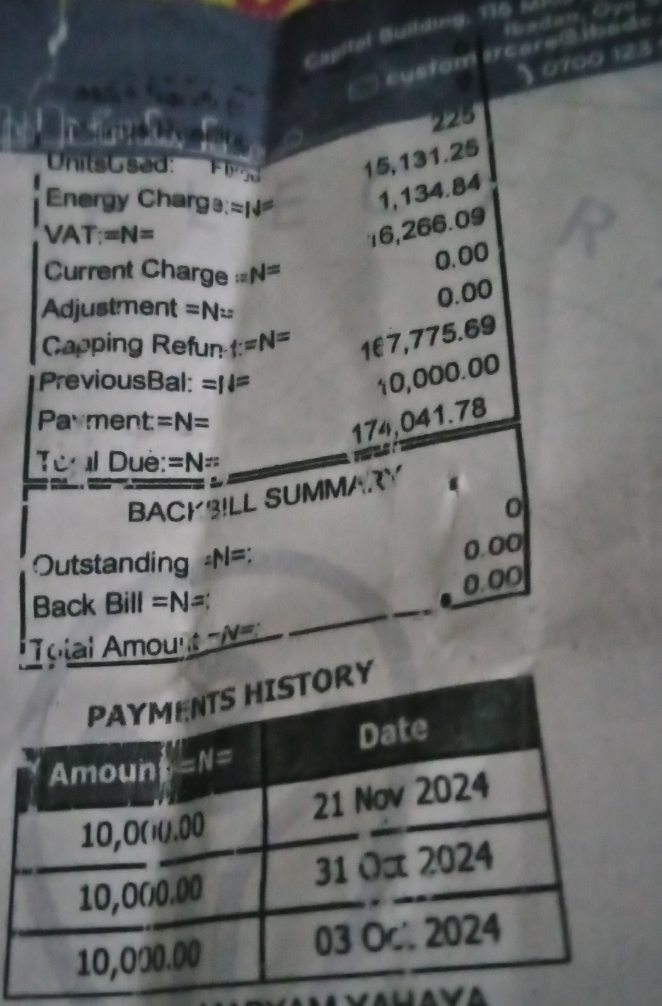
Electricity bill of unmetered residence
Journey to IBEDC Ilorin Challenge Office.
To ascertain the official procedure for applying for meter and the actual fee, this reporter visited the office of Ibadan Electricity Distribution Company located in Challenge Area of Ilorin. The IBEDC office resembles a police station or court area, where customers await their turn to resolve issues. Staff of the company beckon customers through an open window with a gapped burglar iron, to purchase prepaid vouchers. The scene depicts a typical customer-client approach. Other customers linger around, lodging complaints about estimated charges, disconnection and pending meter supply issues.
A customer unit officer who identified herself simply as Iledare confirmed availability of meters in two categories: single phase; used in homes and small businesses, costing ₦125,000. Also said to be available, was the three phase meter, used in larger commercial and industrial applications, sold for ₦135,000.
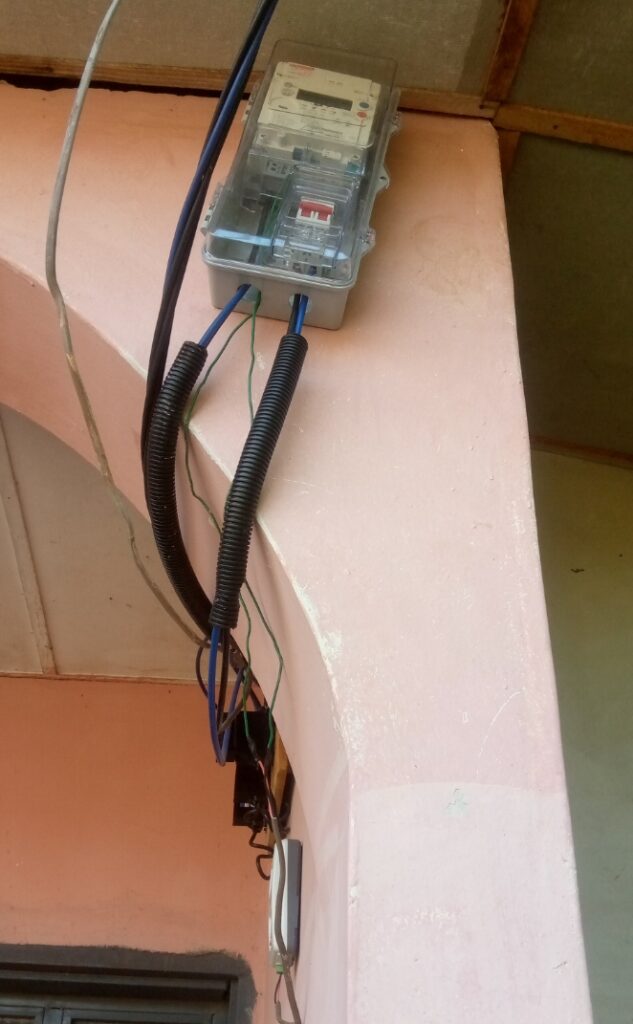
Single phase meter
Iledare gave an assurance that installation would occur within three weeks of application. Meanwhile, this timeframe contradicts narratives by some customers who claimed to have received their meters within a week of payment while other customers said they had been waiting endlessly without any hope of getting one soon, raising concerns about a “man-know-man” approach.
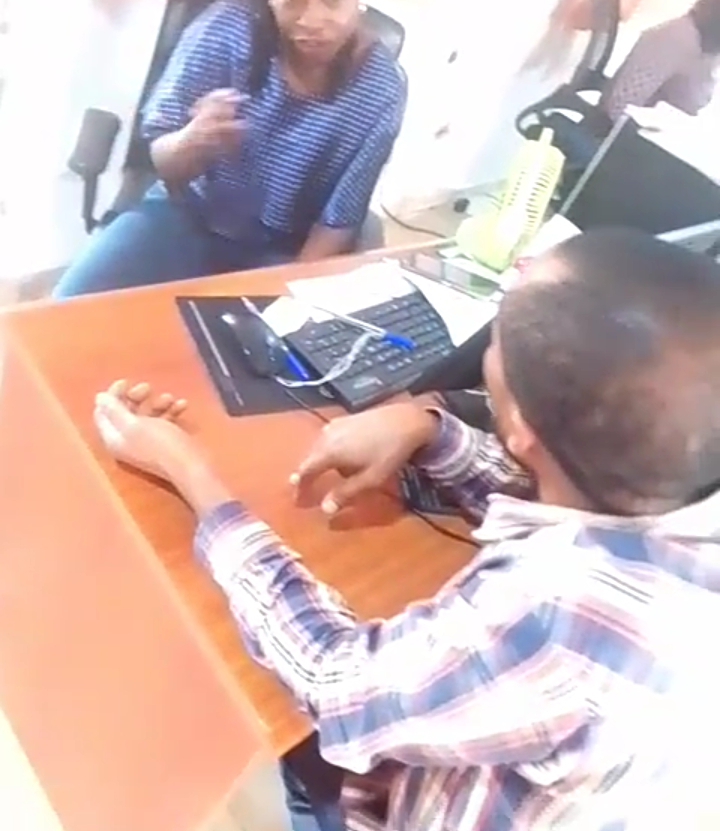
Iledare explaining meter procurement process
Adefemi Iyiola, a Band A electricity consumer, who relocated from Lagos to Ilorin narrated how he took a loan and walked into the IBEDC office on a Monday morning to apply for a prepaid meter. That was on September 2, 2024. The friendly customer care officer had assured him that his residence would be metered within two weeks. The story has since changed. “Despite numerous follow-up calls, the promise remains unfulfilled. I am highly disappointed,” he fumed.
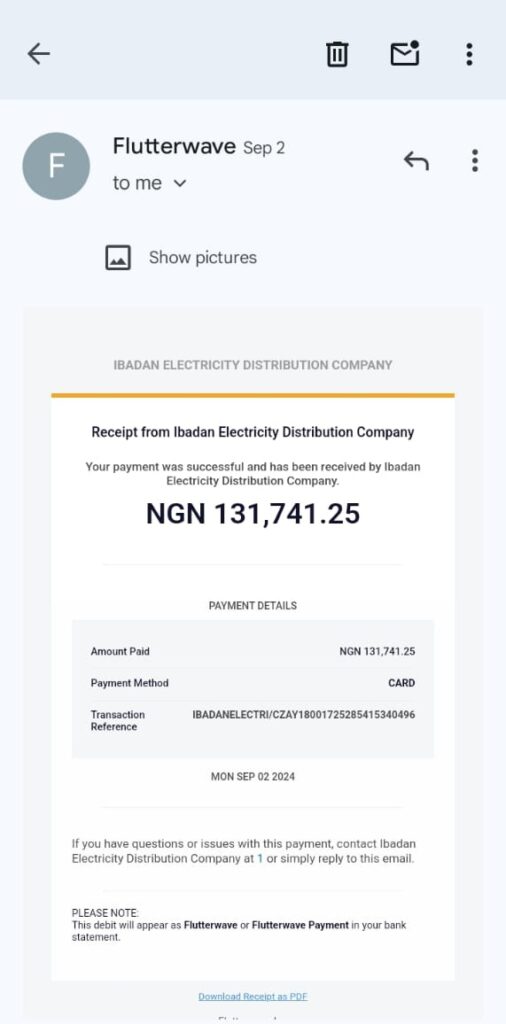
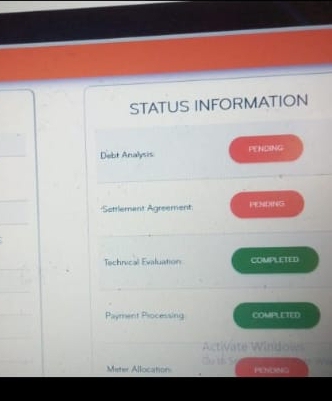
Evidence of payment
On his part, Rasheed Alowo, a landlord, had paid the sum of ₦111,000 an IBEDC staff to save his tenants the high cost of estimated billing. He would later discover that the commodity was unavailable, and after a month, he received a refund.
When this reporter visited the Forum office of the National Electricity Regulatory Commission, (NERC), a customer forum desk officer, Ramat Aliyu clarified that if payment had been made directly into the distribution company’s account, a meter would be supplied when available, unless a vendor or staff member was paid directly. The NERC staff explained that both current and VAT charges on concerned residents are unavoidable due to the lack of prepaid meters.
“People always complain, asking for a yardstick for measuring electricity use. Fixed billing remains the only option for unmetered residences. We always advise them to get prepaid meters… Outstanding charges will be deducted as programmed on token units when they get metre,” she said.
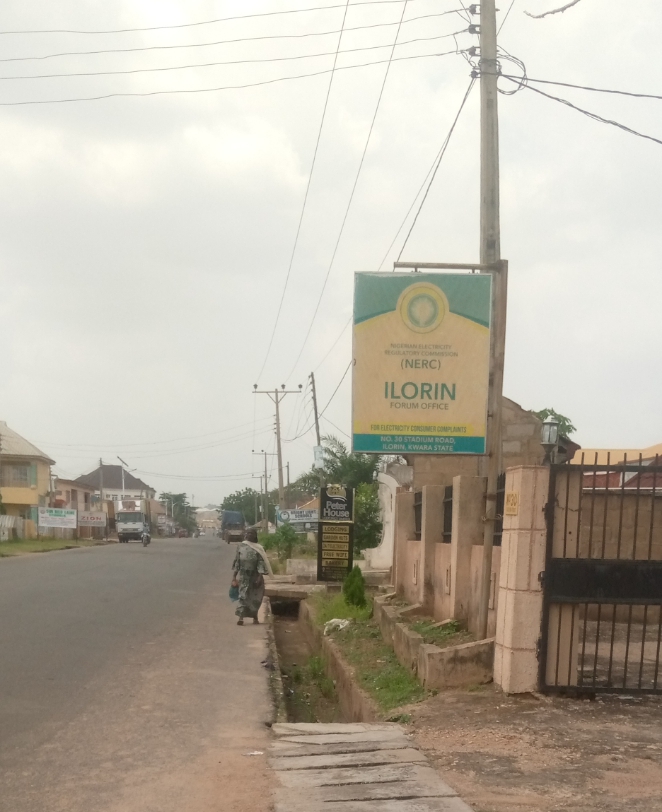
Ilorin NERC Forum Office (photo by Sola Rotimi)
Meanwhile, to cut costs, some customers have devised all sorts of self- help measures as the issue of arbitrary increases in power tariffs has been a major challenge for them.
The Federal Competition and Consumer Protection Commission (FCCPC) as reported in Punch
https://punchng.com/meter-premium-customers-in-60-days-fccpc-tells-discos/ had urged the Nigerian Electricity Regulatory Council to mandate Distribution Companies to meter premium customers. This directive received satisfactory feedback from customers. Notwithstanding, many houses still do not have prepaid meters as a result of short supply and lack of funds. The concerned customers receive monthly estimated bills; with those on Band B receiving monthly bill of over N16,000.
One outstanding advantage the prepaid customers have over their postpaid counterparts is that they are not bombarded with accumulated charges, and they don’t have to worry about disconnection issues. Also, customers with prepaid meters can monitor and maintain their daily power consumption.
Meter Bypassing
Mr Moses Edem expressed displeasure over the high costs and levies imposed on residents of his area, Tanke- Akata by distribution companies. He pointed out that customers are forced to contribute to the repair or replacement of faulty transformers and electric poles, which in his opinion, should be the sole responsibility of the companies. When Mr Ibilola Alase couldn’t beat high tariff, he joined the league of his co-tenants to pay ₦10,000 to an electrician to bypass his meter. He said the prepaid meter installed by his landlord had limited his family’s ability to use certain household appliances like electric cooker, water heater, freezer, washing machine and blender. When asked if he was not worried that his illegal action could be uncovered, Alase retorted that those who facilitate meter bypasses do so with utmost professionalism as they often conceal the illegal connections in hard-to-reach areas to avoid detection by the Distribution Companies (DisCos) inspectors. He added that such cases are only discovered if a whistleblower reports them.
“Well, I know the consequences of being caught bypassing my metre–but I’m very sure I can’t be caught except I’m exposed by the electrician or a neighbour,” Alashe said.
All of Mrs Ramata Yusuf’s neighbours have been illegally connecting to the power supply through a decoy meter that constantly beeps, making it look like they use a legitimate connection. They have also devised a switch that they quickly activate whenever they suspect inspectors are approaching, enabling them to pretend they are using a legitimate connection.
“In my area, I can tell you that it is only my flat that has a meter that is not bypassed. These people know when the DisCo’s inspectors will be around. They quick switch from direct supply to meter,” she explained.
Another customer, Mr Ladele alleged that his friend was able to bypass his meter with the assistance of a technician. His friend later suspected that the same technician had betrayed him, revealing the illegal connection. He also believed that only the original installer could have had the knowledge to detect the bypass. His friend was slammed with a N60,000 fine which he paid directly into the account of an IBEDC staff in three (months) installments.
This reporter was able to get the phone contact of an electrician said to specialize in meter bypass. There was a discussion on the details of the job. Two separate sources had recommended him, and he seemed confident in his expertise. However, when asked to provide a quote, he insisted on conducting a physical surveillance of the premises before giving a price. The electrician, Yusuf, finally arrived on October 16, 2024. Our initial conversation was followed by several calls, with him consistently making unfulfilled promises. This time, he was offered a tip which also covers his bike fair. He asked for the location and I had to quickly arrange an alternative site since the occupant of the original location was out of town. Yusuf arrived with another young man on a bike, and they both sized me up with an unfriendly look. Yusuf passed for a man in his mid-thirties with a cream-enhanced complexion. He seemed nervous, constantly calculating his steps. He kept his hands mostly in his groin area throughout our meeting. We conversed in Yoruba, a switch from our initial conversation in pidgin English. He seemed distrustful of the caller and spoke cautiously.
“If only I want to lie to you…,” he began, “the way your residence is… we can only work when we have the meter installed.” He examined the residence and expressed concern about the flat being on the middle floor of a two-storey building, making it difficult to bypass a metering device. He suggested that if it were on the last floor, he could work a wire through the ceiling. Nevertheless, he told me to call him once the meter was installed.
I pressed for more information on how he would execute the job, promising to pay for wires. He explained that they don’t always use wires, sometimes they opt for a ‘breaker’, depending on the meter type. He emphasized the need for caution with whistleblowers. If he were to use wiring, a switch over would be necessary. He however assured me he would return, but at one point, seemed to suspect he was being recorded. I quickly switched to sound recording and discreetly pocketed my phone.

Blurred image of bypass technician
According to Mr Francis Ugwute, an engineer at the Transmission Company of Nigeria (TCN), National Control Centre in Osogbo, in a phone conversation, “Distribution Companies lose up to ₦100bn to ₦300bn per annum due to energy theft. Apart from revenue loss [it] leads to increase in tariff for legitimate customers and those whose residence are not metered.”
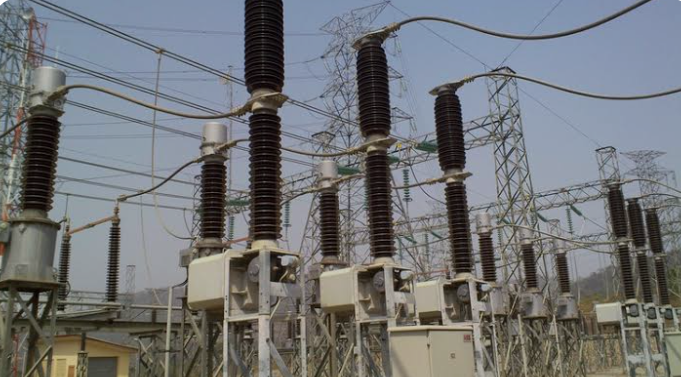
TCN National Control Centre Osogbo
Ngwute also identified some causes of energy theft to include high tariff for low income customers, poor power supply, biting economic situation as well as citizens’ sense of entitlement towards public infrastructure.
The Nigerian Electricity Regulatory Commission, at its Civic Forum on Energy Security, which was organized by the Conference of Civil Societies and Centre for Civil-Military Cooperation (CIMICO) in Abuja on June 6, 2024, warned that the Electricity Act of 2023 stipulates stiffer penalties for energy theft. The forum also highlighted the need for collective effort in safeguarding Nigeria’s energy infrastructure. The meeting, which had key stakeholders from various sectors in attendance, also had NERC officials present insightful papers, including discussions on recent tariff reviews and the circumstances necessitating them. The officials also underscored the causes, consequences, and penalties of electricity theft.
A search on NERC’s X handle revealed a statement by Abdulazeez Abdullahi, Head of Corporate Communication at Kaduna Electric, emphasizing the need for customers to pay for the electricity they consume.
“Energy theft, including bypassing meters, is a significant issue, even among influential members of society. Bypass is a big issue. Even big people in the society who you would think are above it also engage in energy theft. The mindset that electricity is public utility needs to change,” he wrote.
https://twitter.com/NERCNG/status/1729398089448911141?t=9XNX8CE2v5PQD1y7KcswRQ&s=19 .But most of the commenters on the post believed that energy theft could be curbed when distribution companies provide quality service. They implied that the lack of reliable and efficient electricity supply is a significant contributor to energy theft, and that improving service delivery will address the issue.
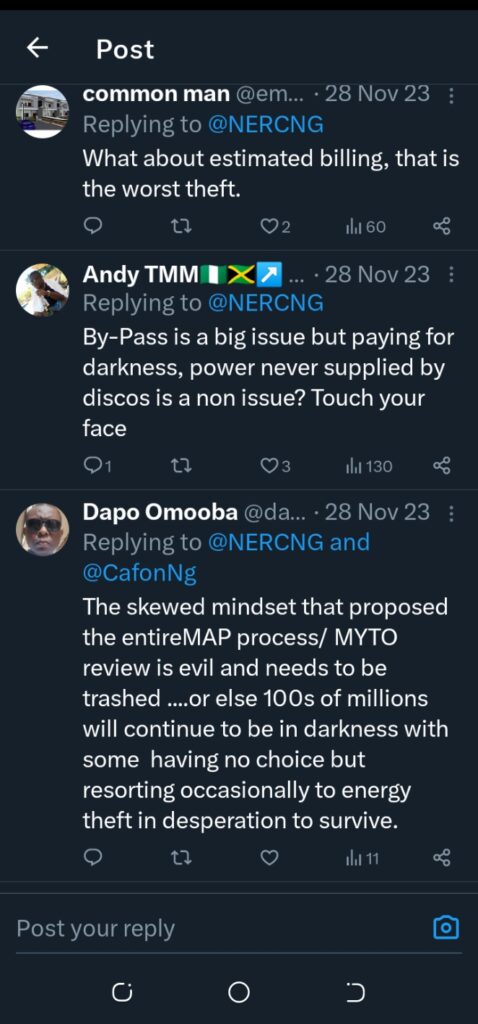
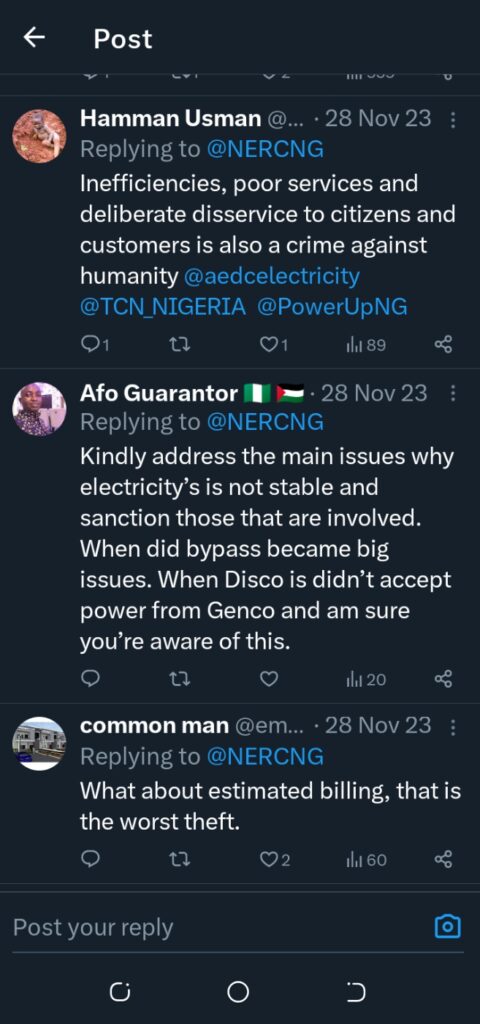
Comments on X
Engr Ngwute also recommended that distribution companies adopt advanced technologies to prevent metre bypassing. According to him, installing a coded chip in meters would provide a tamper-proof and automatic reading system. Unlike the old prepaid meters that rely on manual inspections, which can be easily compromised, he said the system could ensure accuracy and security. According to Ngwute, by embracing cutting-edge technology, there could be a significantly reduced energy theft which could in turn, enhance revenue collection.
He pointed out that challenges of consumers not having access to prepaid meters and distribution companies losing a huge amount of money to energy theft, pose significant burden to the average citizen.
Nevertheless, interactions with some of the respondents revealed that despite the challenges, thousands of electricity consumers remain faithful and committed to paying their electricity bills. Some of them would rather endure power outages than engage in power theft. These group of Nigerians continue to hold onto hope for better days ahead in the energy sector, as experts in the electricity power chain believe that a permanent solution is necessary to bring about lasting change.
Note: To maintain confidentiality, certain names have been altered.
This story was produced with support from Wole Soyinka Centre for Investigative Journalism (WSCIJ) under the Collaborative Media Engagement for Development Inclusivity and Accountability Project (CMEDIA) funded by MacAarthur Foundation.

